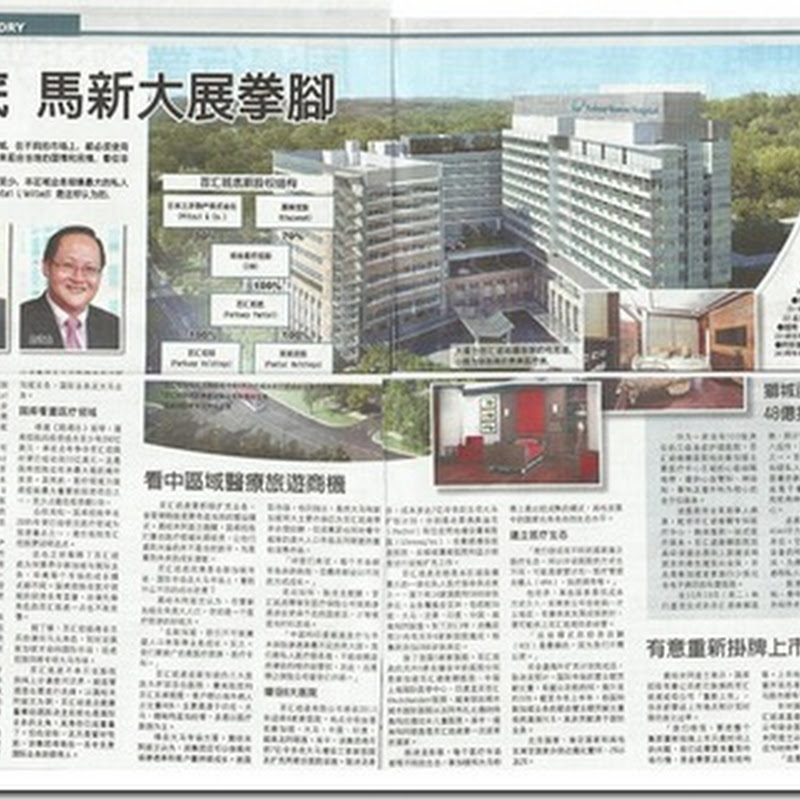It intends to grow its plantation business by acquiring land in Southeast Asian countries to undertake the cultivation of oil palm, rubber and other industrial crops. It was eyeing assets in Indonesia, Cambodia, Thailand, Vietnam, Myanmar and Laos.
LFIB is acquiring close to 10,000ha of plantation land in Cambodia for US$3.9 million (RM11.5 million) cash from the Cambodian government. The purchase will grant LFIB the concession rights for these assets for a period of more than 70 years. It wholly owned subsidiary Harta Impiana Sdn Bhd had engaged Cambodia-based Seng Enterprise Co Ltd to facilitate the purchase of the land where the acquirer plans to cultivate oil palm and rubber trees.
Following the disposal of LFIB’s tyre operations both in Malaysia and China, the group has been studying and identifying a new core business. The proposal allows the LFIB group the opportunity to tap into a new core business and also to diversify its earnings stream by investing in land for the plantation of rubber and/or oil palm.
The land acquisition, to be financed with LFIB’s internally generated funds, is due for completion in the second half of 2011.
The purchase is not expected to have a material effect on the company’s earnings in the current FY12 ending June 30.
The company’s plan to expand its plantation assets in the region comes at a time when palm oil and rubber prices have risen in the past one year.
LFIB forms part of the Lion Group which has five companies listed on Bursa Malaysia with another two each in Indonesia and Singapore, and one in Hong Kong. The conglomerate is controlled by tycoon Tan Sri William Cheng.
In March 2011, LFIB had announced its intention to sell its local tyre manufacturing unit Silverstone Bhd for RM462 milllion to Japan’s Toyo Tire & Rubber Co Ltd.
In Malaysia, Lion Group’s plantation business is undertaken under Akurjaya Sdn Bhd while its Indonesian units comprise PT Lion Intimung Malinau and PT Kebunaria. Compared with other businesses under the Lion Group banner, the plantation unit is still deemed small.
Plantations contributed RM7 million to the group’s annual revenue of RM17.99 billion in the year ended June 30, 2010. This compares with the retail and trading division, which is the largest contributor, accounting for RM9 billion or half of the group’s revenue.
Its steel division came in second, with RM7.25 billion or 40% of the conglomerate’s top line during the period.
LFIB is acquiring close to 10,000ha of plantation land in Cambodia for US$3.9 million (RM11.5 million) cash from the Cambodian government. The purchase will grant LFIB the concession rights for these assets for a period of more than 70 years. It wholly owned subsidiary Harta Impiana Sdn Bhd had engaged Cambodia-based Seng Enterprise Co Ltd to facilitate the purchase of the land where the acquirer plans to cultivate oil palm and rubber trees.
Following the disposal of LFIB’s tyre operations both in Malaysia and China, the group has been studying and identifying a new core business. The proposal allows the LFIB group the opportunity to tap into a new core business and also to diversify its earnings stream by investing in land for the plantation of rubber and/or oil palm.
The land acquisition, to be financed with LFIB’s internally generated funds, is due for completion in the second half of 2011.
The purchase is not expected to have a material effect on the company’s earnings in the current FY12 ending June 30.
The company’s plan to expand its plantation assets in the region comes at a time when palm oil and rubber prices have risen in the past one year.
LFIB forms part of the Lion Group which has five companies listed on Bursa Malaysia with another two each in Indonesia and Singapore, and one in Hong Kong. The conglomerate is controlled by tycoon Tan Sri William Cheng.
In March 2011, LFIB had announced its intention to sell its local tyre manufacturing unit Silverstone Bhd for RM462 milllion to Japan’s Toyo Tire & Rubber Co Ltd.
In Malaysia, Lion Group’s plantation business is undertaken under Akurjaya Sdn Bhd while its Indonesian units comprise PT Lion Intimung Malinau and PT Kebunaria. Compared with other businesses under the Lion Group banner, the plantation unit is still deemed small.
Plantations contributed RM7 million to the group’s annual revenue of RM17.99 billion in the year ended June 30, 2010. This compares with the retail and trading division, which is the largest contributor, accounting for RM9 billion or half of the group’s revenue.
Its steel division came in second, with RM7.25 billion or 40% of the conglomerate’s top line during the period.





















































No comments:
Post a Comment